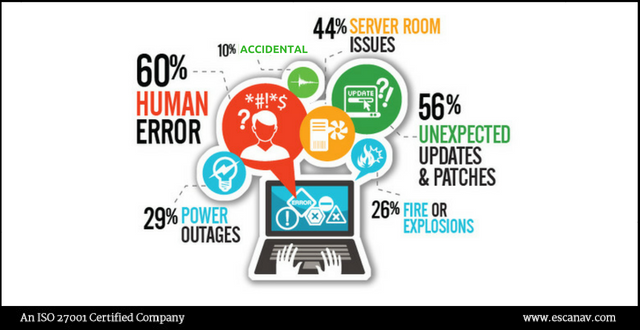For nearly as long as digital data has existed, users have stressed over securing their data from getting compromised. At the easiest level, having a data backup is just an additional duplicate of every recorded data. In a perfect world, you need to keep the originals and two duplicates. At that point, if something should occur to your data, despite everything you have a substitution set in addition as a backup to approach.
Having an all-around data backup system in place doesn’t just secure you against the injury of incidentally erasing your records. It also gives you a security net if an infection hits your PC, programmers hold your data hostage or your children drop water over your system. After a blunder this way, the data backup may be your alternative for recovering your data, so you shouldn’t postpone in setting up the backup system.
Over the years all kinds of data backup solutions have appeared, and the whole process is now much more straightforward than it used to be. In addition, increasing internet speeds have made backing up to the cloud much more viable, reducing our reliance on plugging in external drives or burning piles of DVDs.
One of the easiest ways to create backups of business data is to simply store copies of important files on hard drives, tape drives or other storage devices connected to your systems or network.
Steps to take a backup:
- Get an appropriate storage device: Find an external device capable of storing all your data that you need to backup and should have storage memory by at least twice the size of your hard disk.
- Copy the files: Copy all the data in the single folder to make transferring the files easily. It also avoids to accidentally missing any file.
- Online backup solution: Services like Google Drive, Dropbox, Sky Drive and many others provide online storage for your data. However, you will have to manually take a backup every time. For automatic backup, files are synced between all devices running that account, which means that if the file is deleted on the backup server, it is deleted on all your connected devices.
eScan cloud security feature is available in various eScan’s security products for home and small office users. They include eScan Anti-Virus, eScan ISS and eScan TSS with cloud edition etc.
eScan Security Network (Cloud Technology – detects new and unknown threats) eScan’s Cloud-based Security Network collects information from millions of eScan participant users’ computers around the world when they are online, to safeguard your digital world from the latest and unknown threats. This helps to secure your data easily and efficiently.
Read more: eScan Blog






